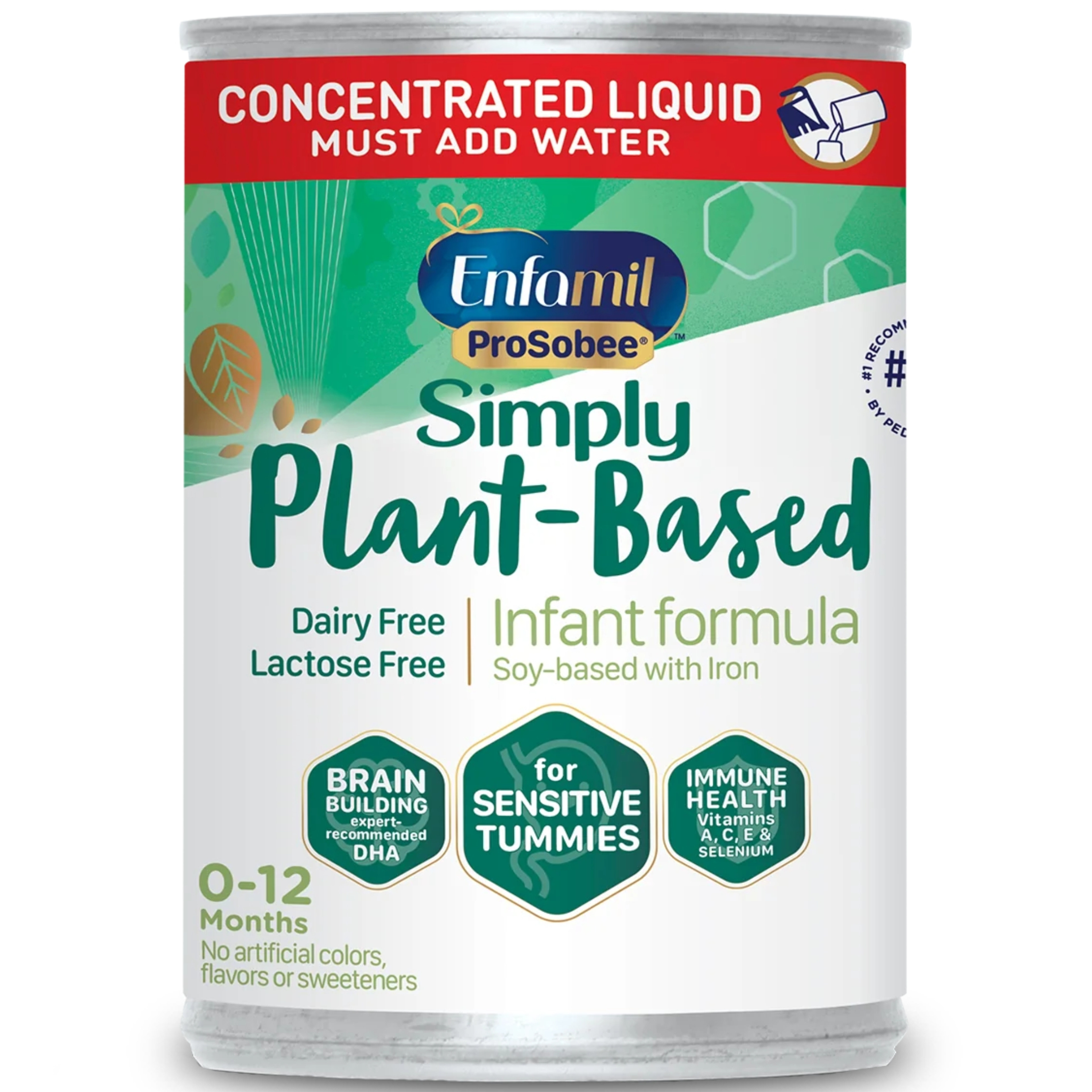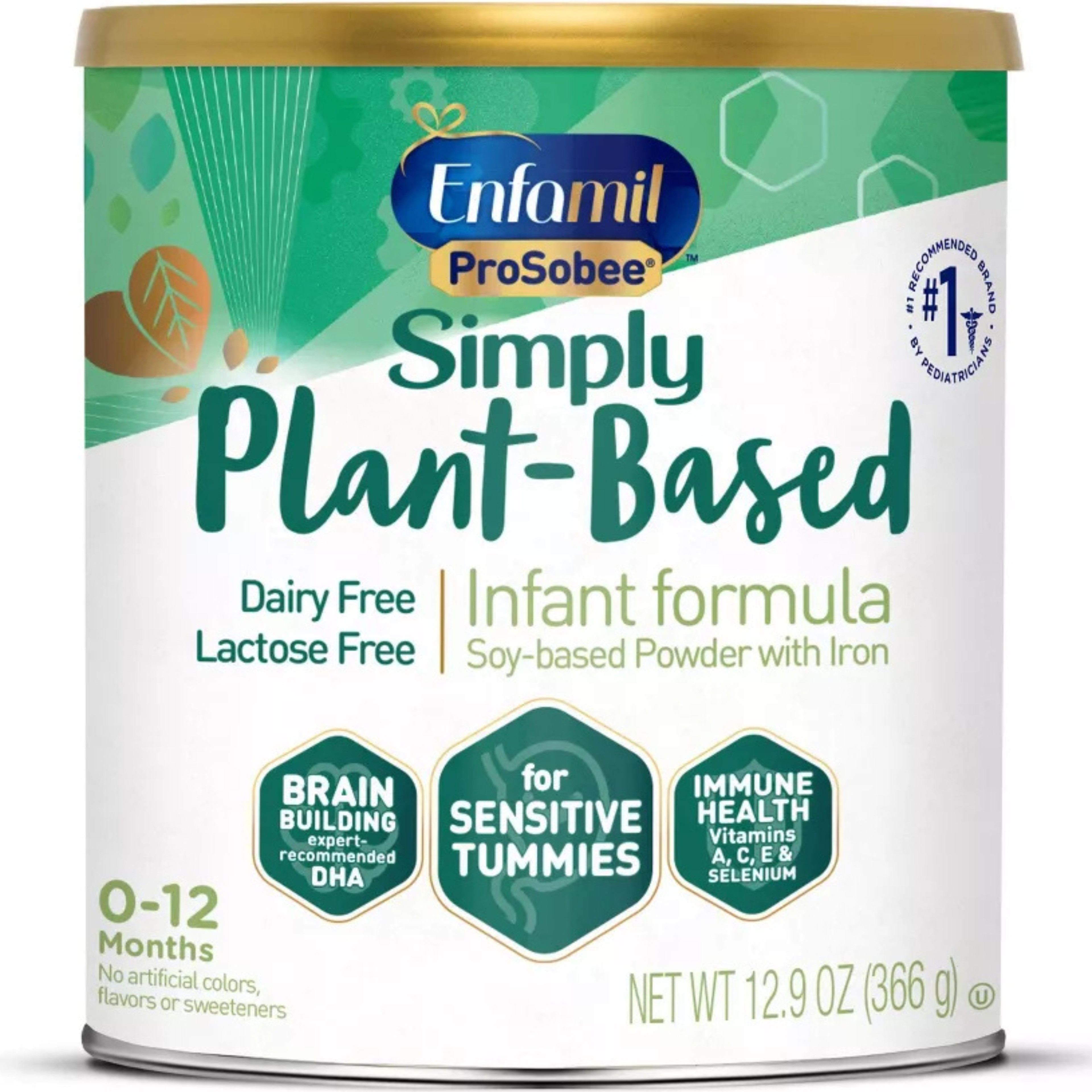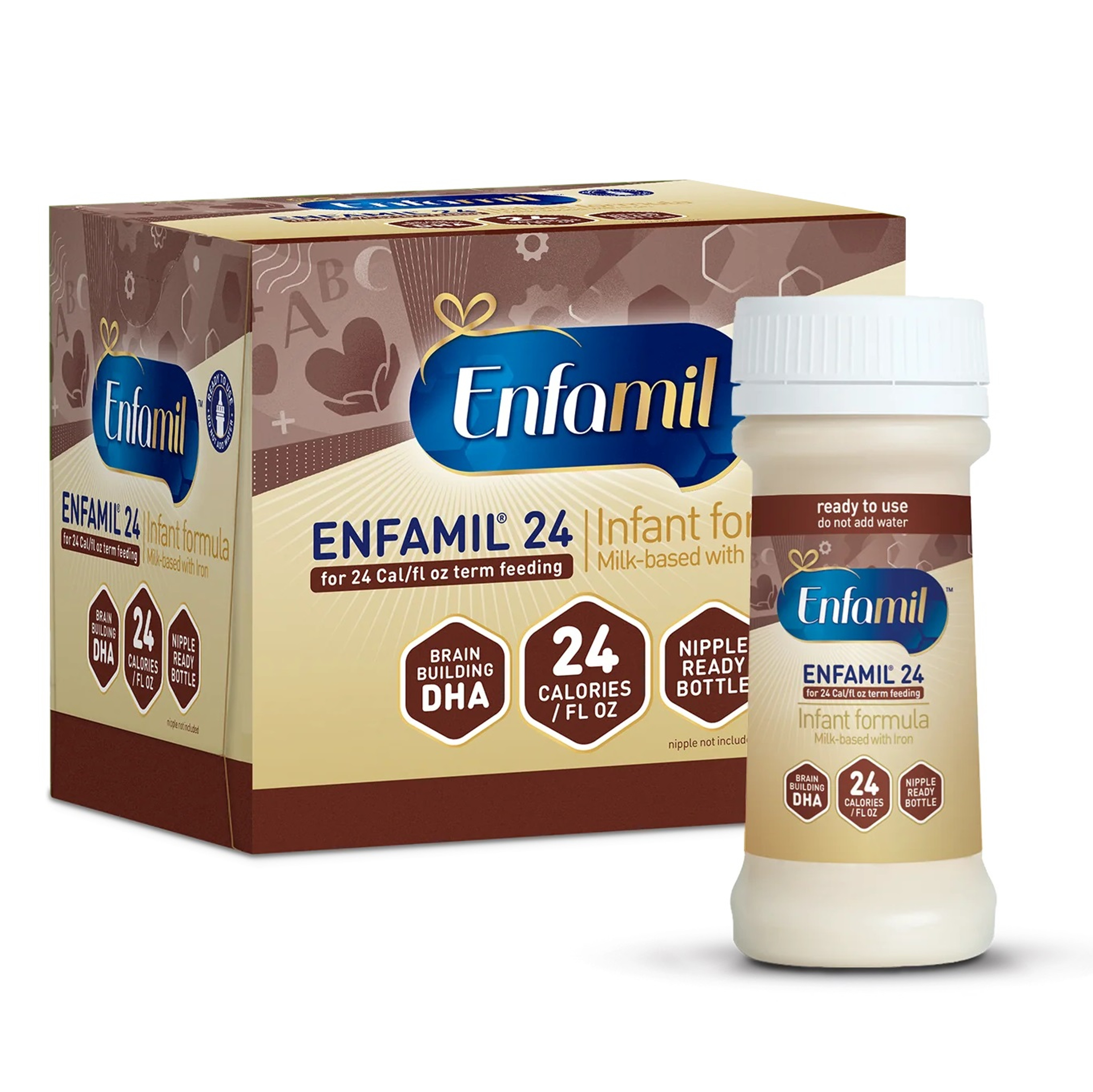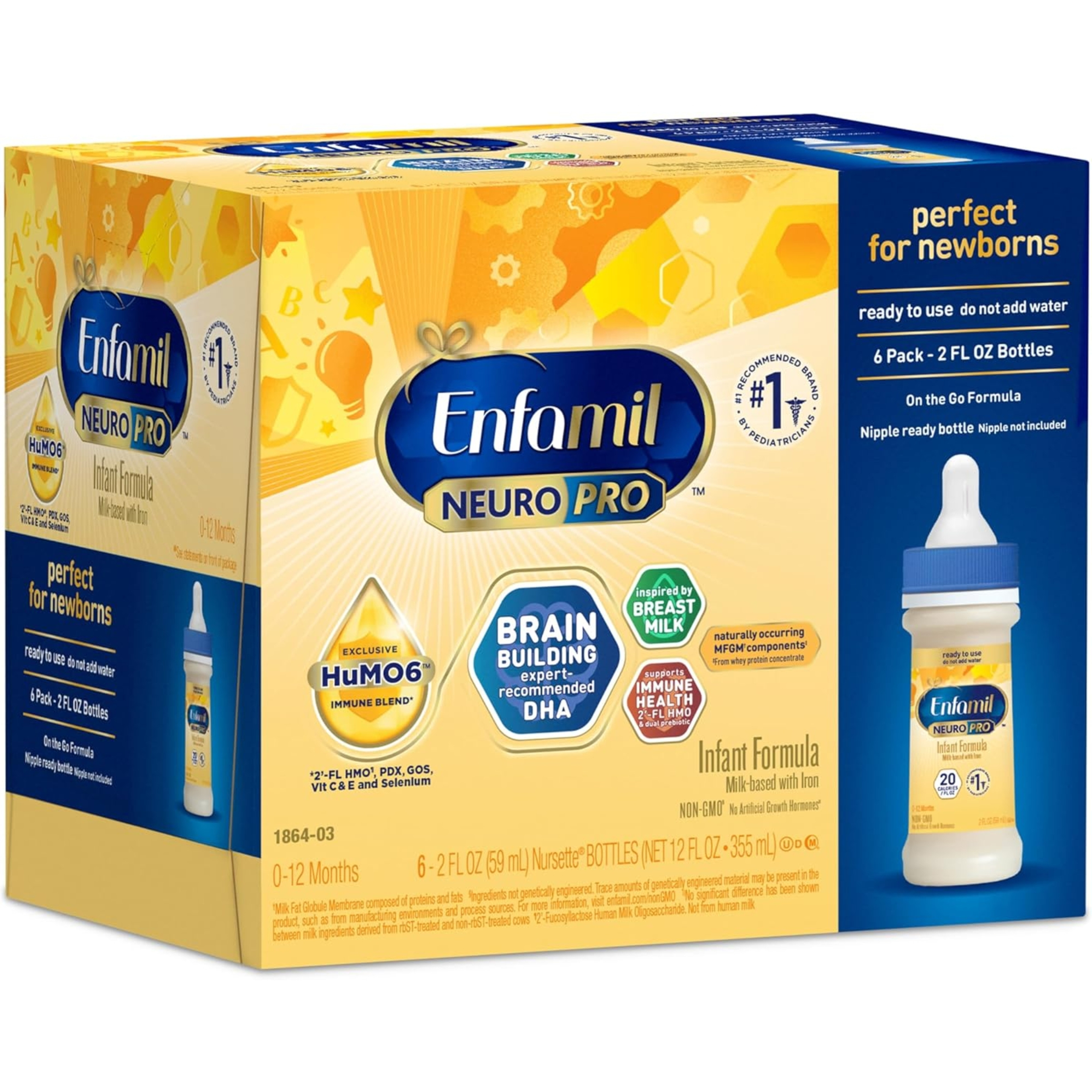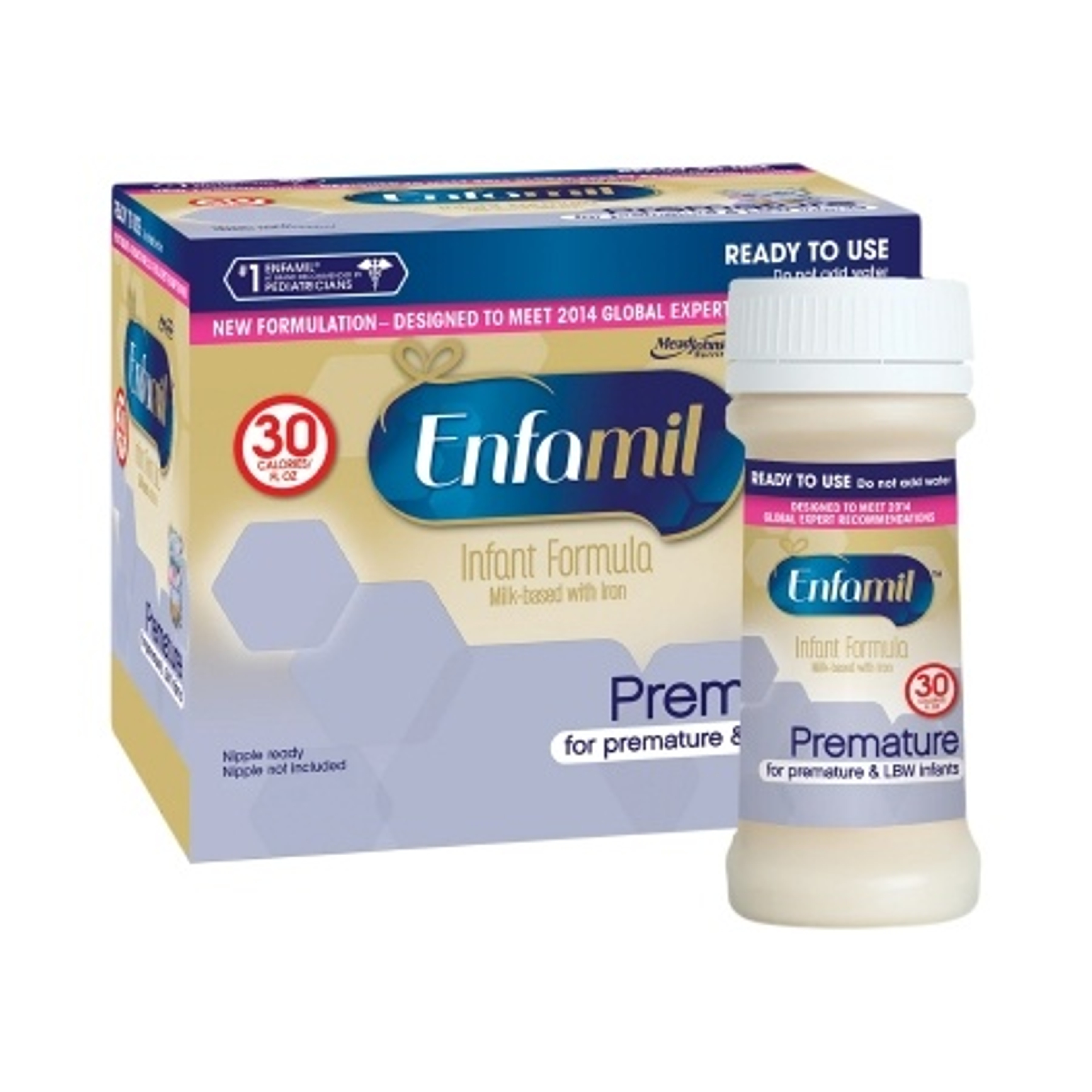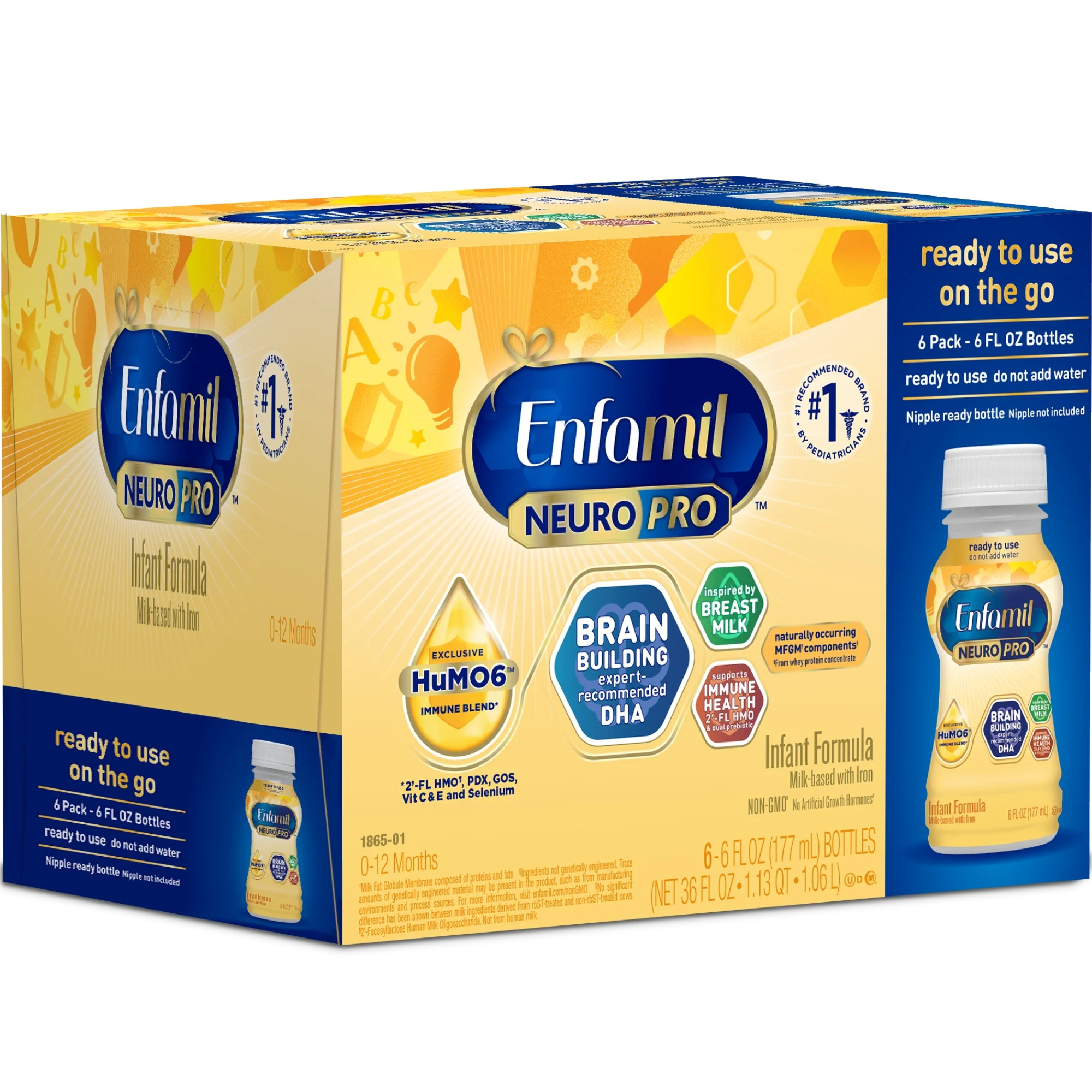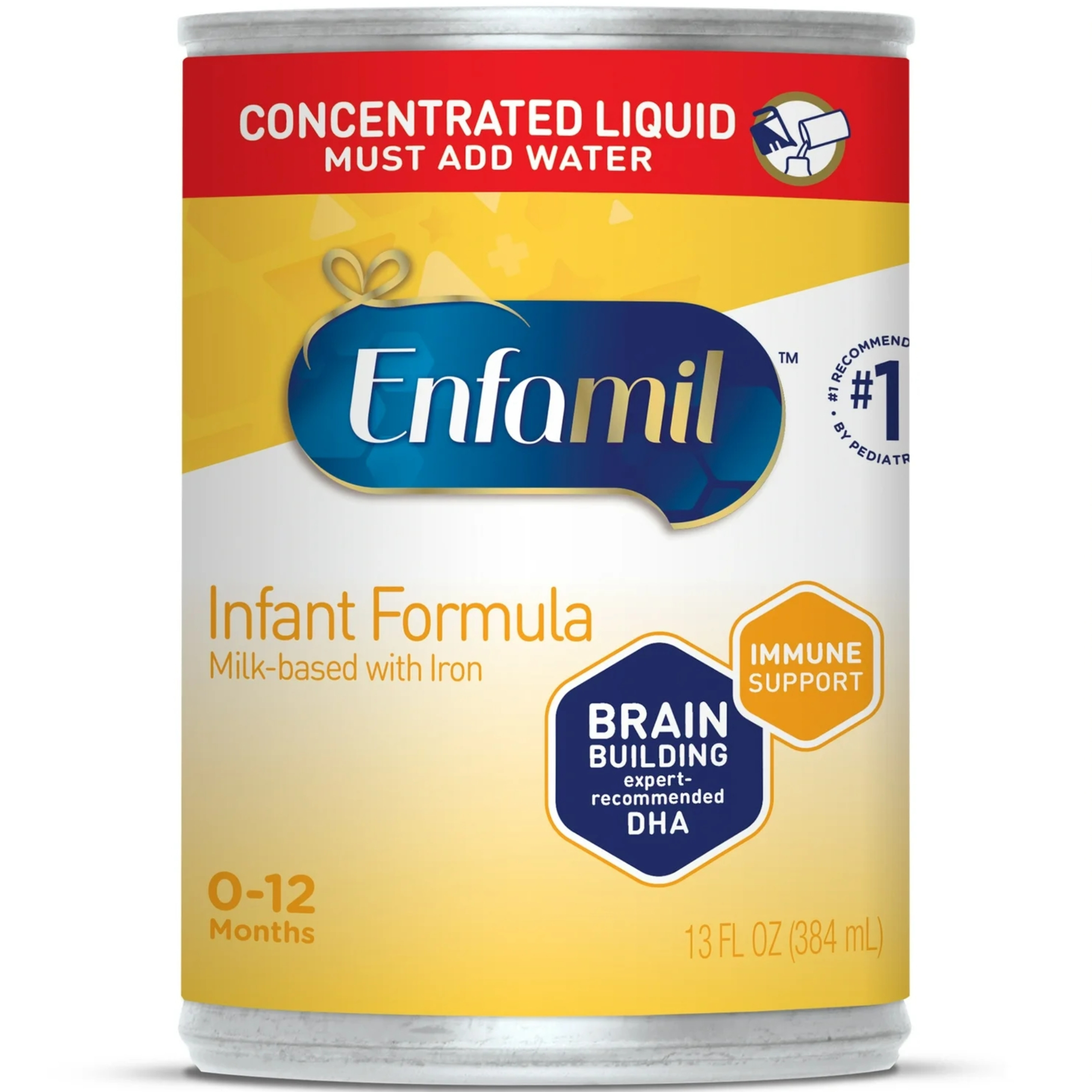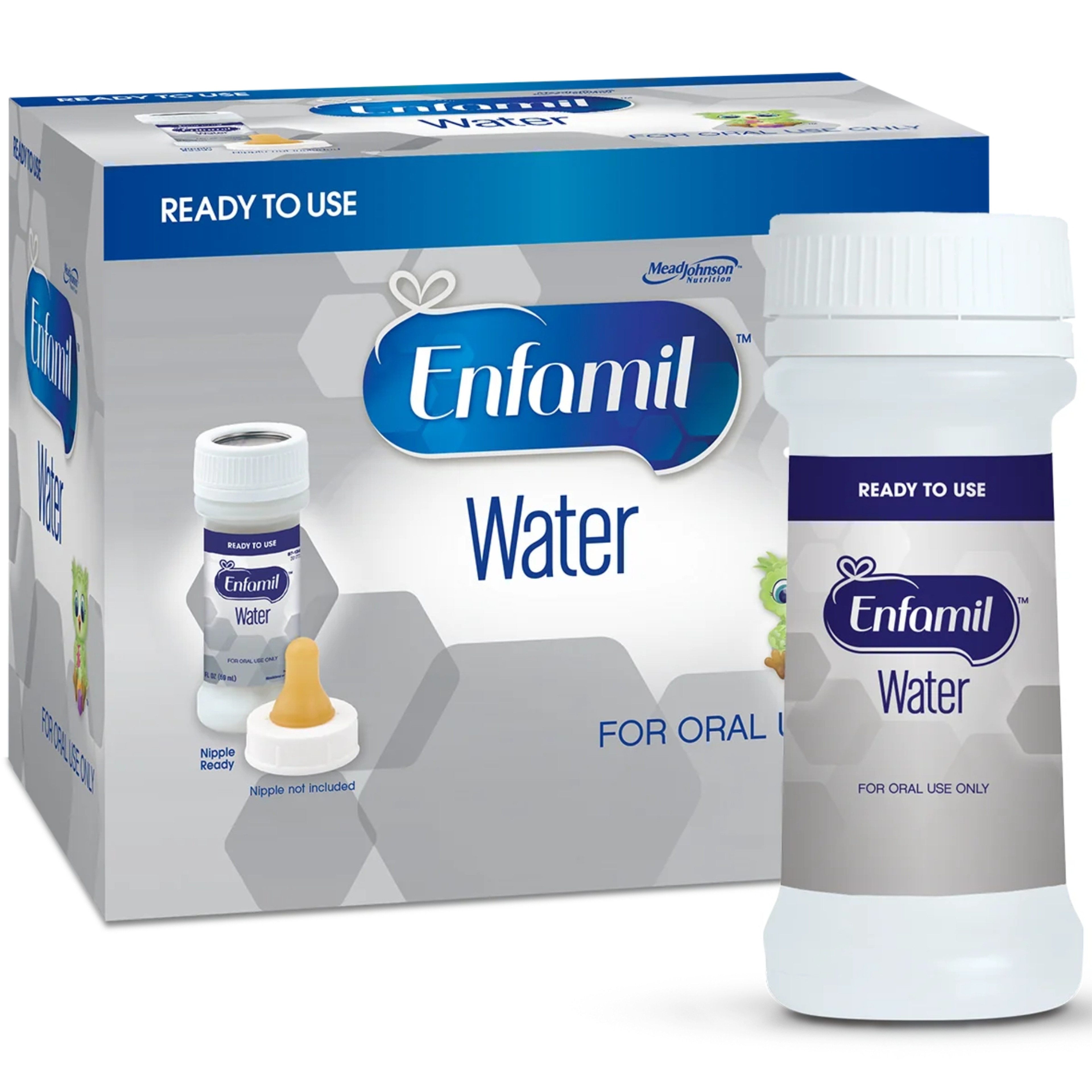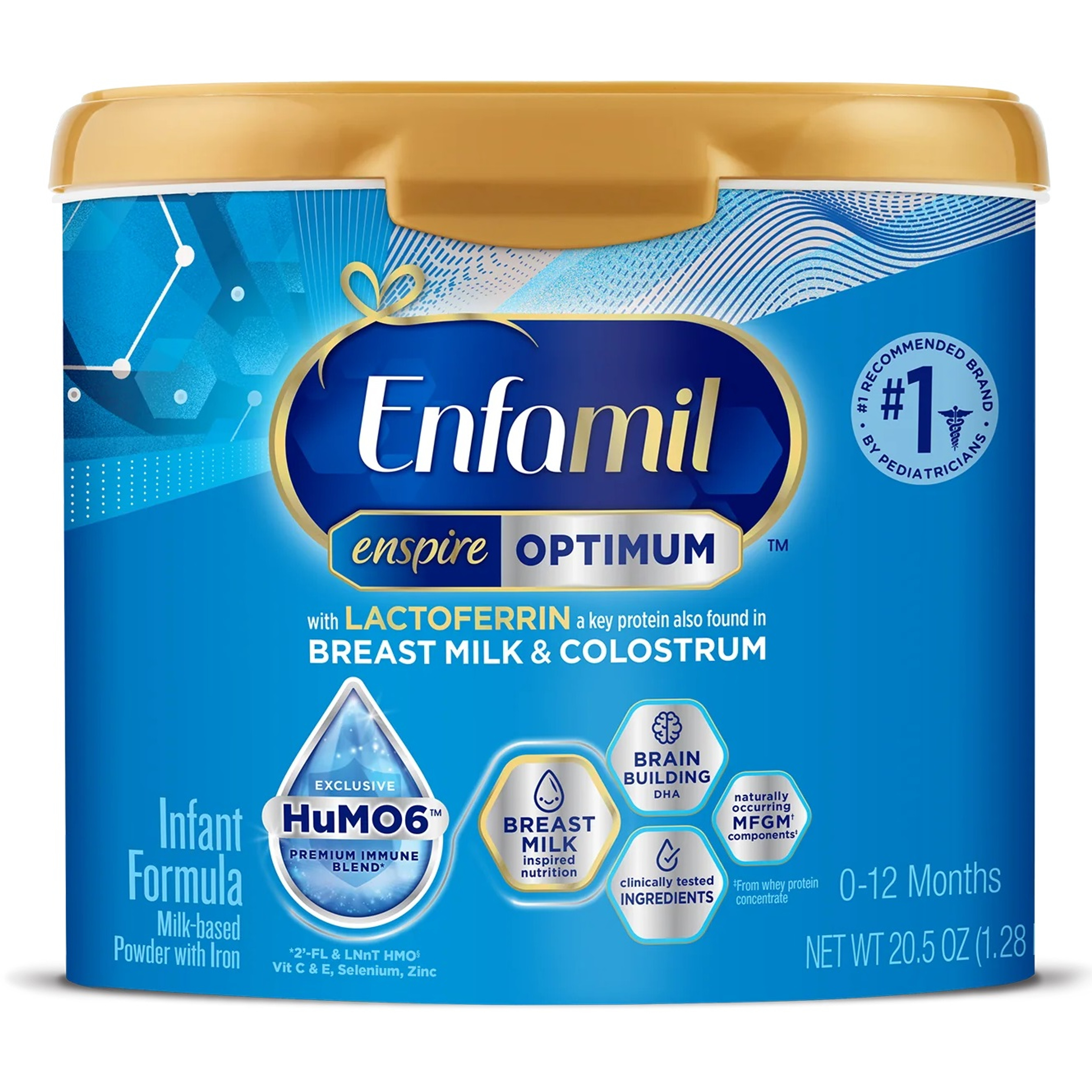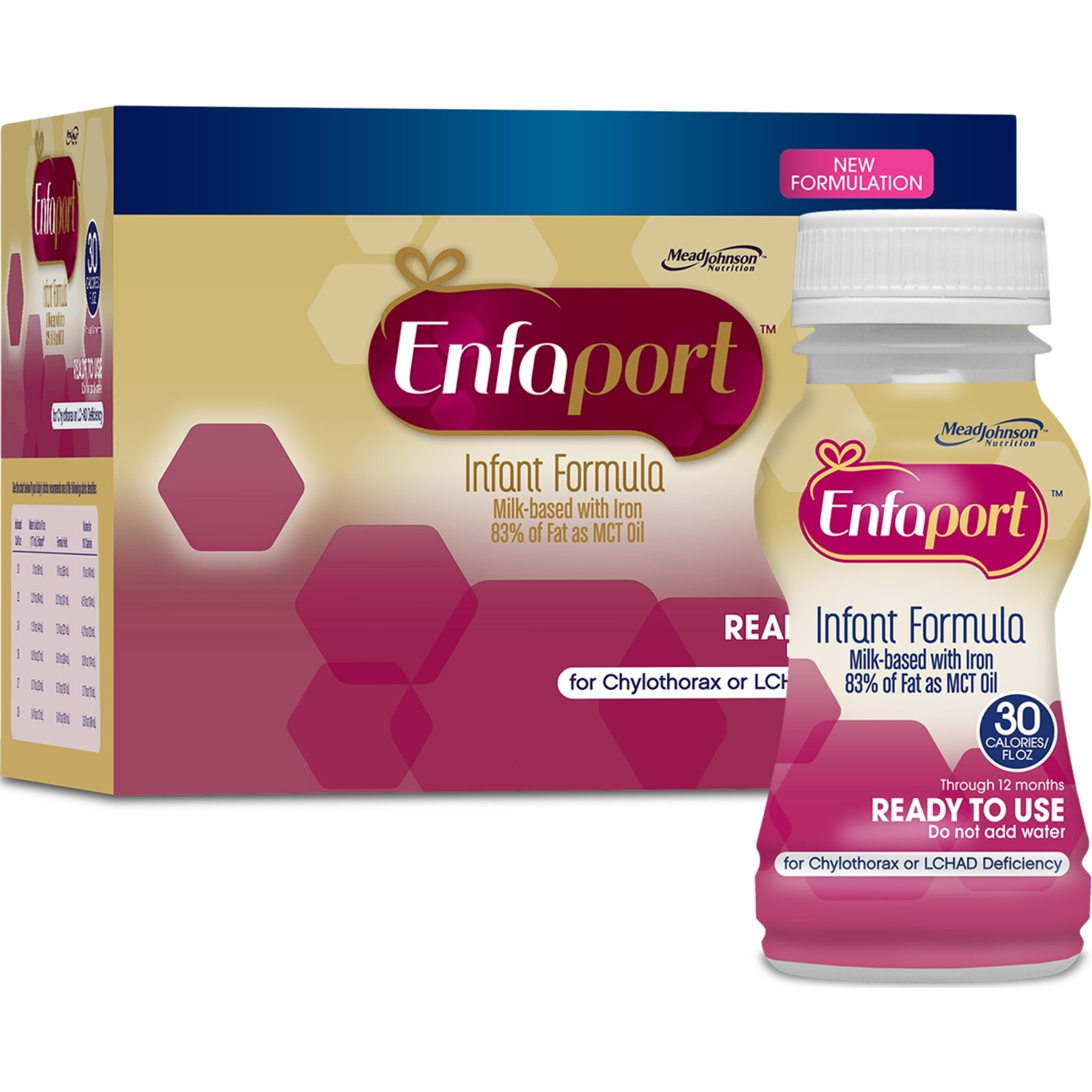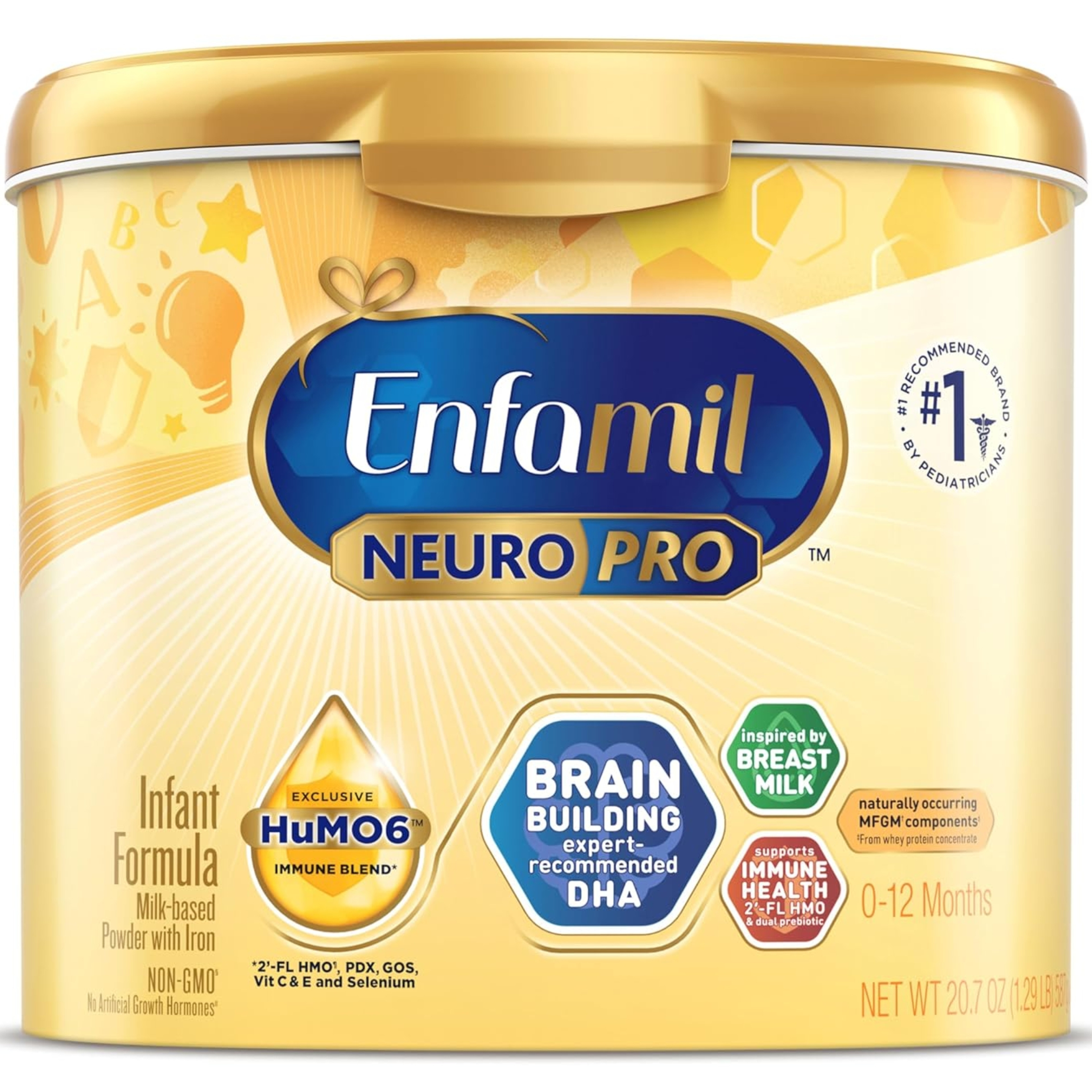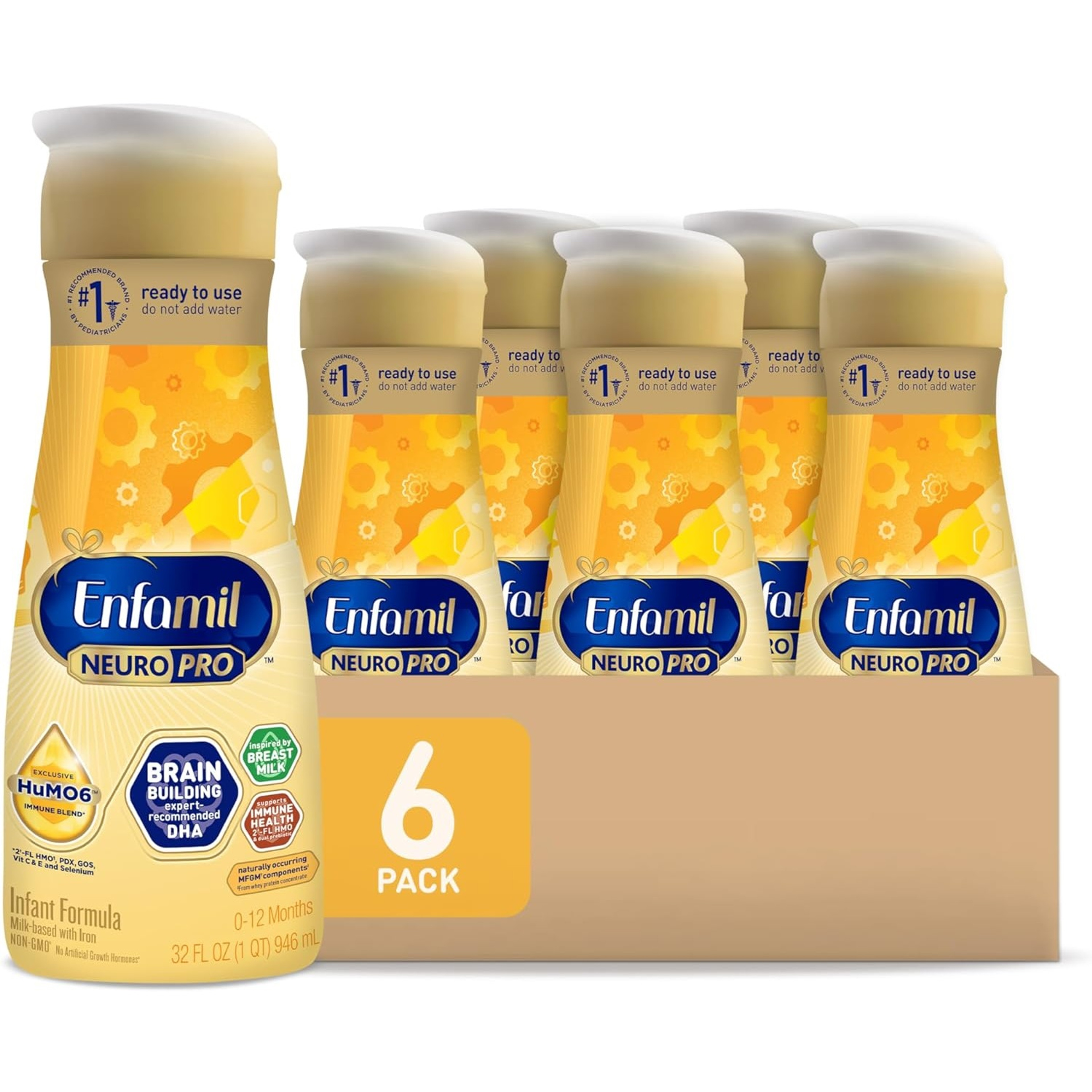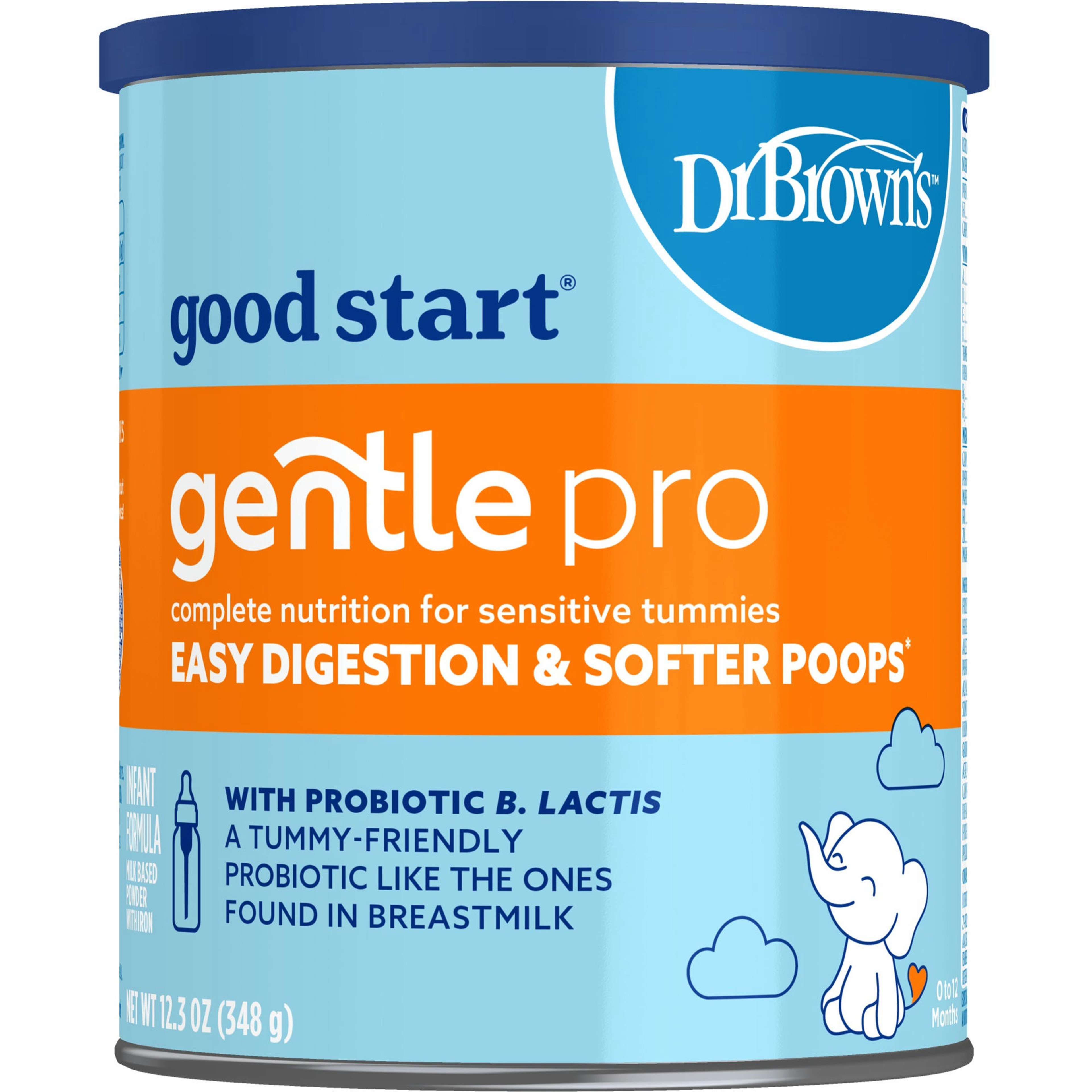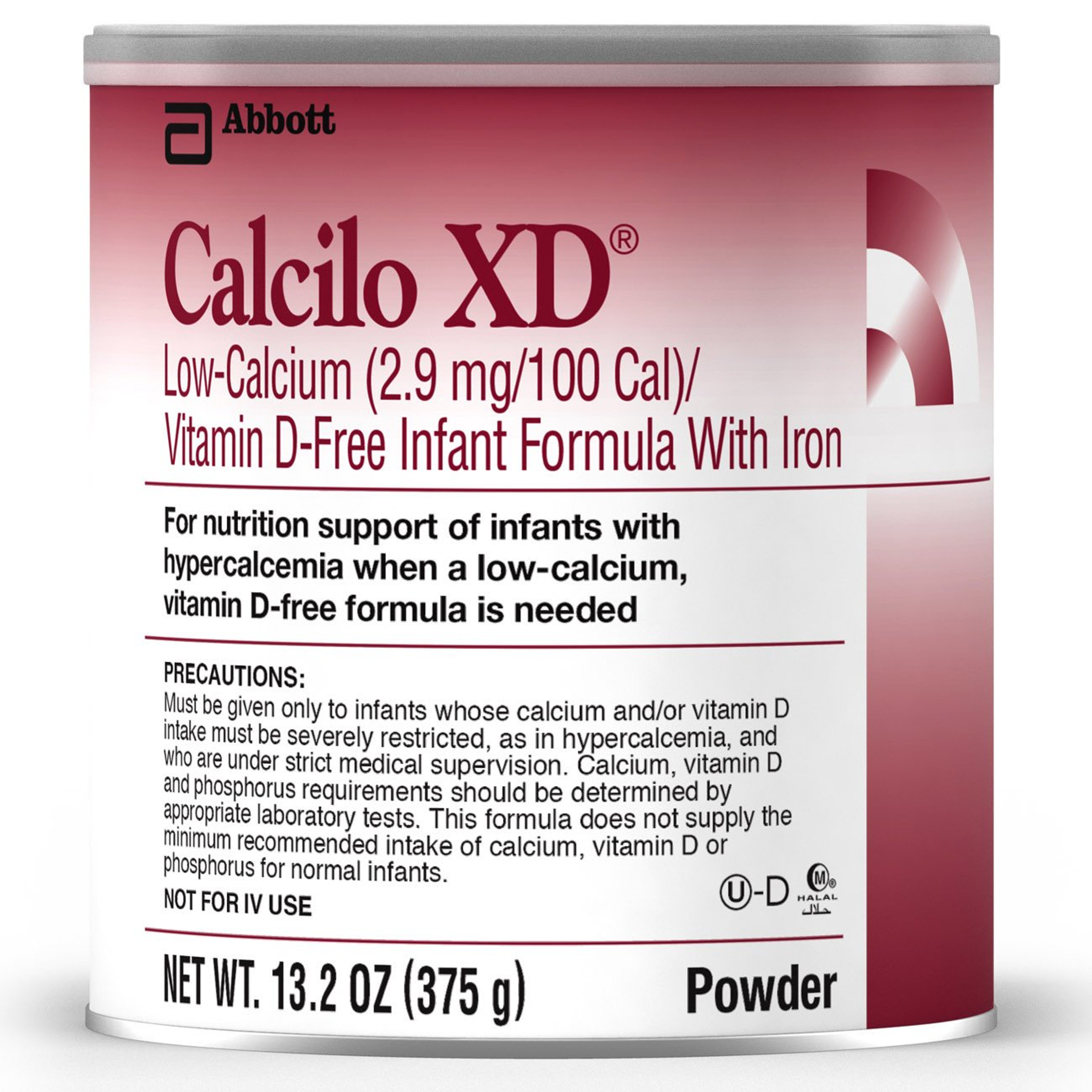About Enfamil ProSobee Soy Infant Formula
Enfamil ProSobee Infant Formula is our plant-based formula with plant-sourced protein that is easy on sensitive tummies. Our ProSobee Formula is suitable for infants with lactose intolerance & is perfect for families with special dietary needs (i.e. vegetarian, Kosher, etc.) as a dairy-free alternative to milk-based formula. Enfamil ProSobee is also designed to help ease fussiness and gas sometimes caused by milk-based formulas.
Key Benefits & Features
-
Plant-based alternative to milk-based formula
- Helps ease fussiness & gas caused by sensitivity to milk-based formulas
- Great for following special dietary guidelines, like families who require vegetarian or Kosher diets
- The same amount of brain-nourishing DHA as other routine Enfamil formulas
- Enfamil is the #1 pediatrician-recommended formula brand
Enfamil ProSobee Soy Infant Formula FAQs
How do I use the different forms of product Enfamil makes?
Many Enfamil formulas come in ready-to-use liquid, concentrated liquid, and powder. It's always best to follow the directions on the package. They're the most accurate for the product you're using. But here are a few general tips.
Ready-to-use liquid formula doesn't require any preparation. Just be sure to store unopened bottles and cans at room temperature, and refrigerate any opened bottles and cans. Enfamil formulas in powder and concentrated liquid form need to be diluted with water before being fed to your baby.
Prepared formula and opened liquid (bottles and cans) should be fed to your baby immediately, or stored in the refrigerator at 35-40° F or 2-4° C. Formula prepared from powder can be kept covered in the refrigerator for up to 24 hours. Ready-to-use and concentrated liquid formula can be kept covered in the refrigerator for up to 48 hours. Cover or seal opened containers of Enfamil powder formula, store at room temperature, and use within 30 days. Throw away any remaining powder after that time.
How long can Enfamil sit out?
Once you've prepared a bottle of Enfamil baby formula, it should either be fed or refrigerated.
At room temperature, baby formula prepared from powder, concentrate, or ready-to-use should be kept for no longer than two hours. If the baby formula has been warmed, discard after one hour.
Refrigerated baby formula prepared from powder should be kept for no longer than 24 hours if stored at 35°-40°F (2°-4°C). If prepared from concentrate or ready-to-use, baby formula should be kept for no longer than 48 hours if stored at 35°-40°F (2°-4°C).
How long does Enfamil Ready-to-Use formula last, and how do I store Ready-to-Use formula once it's prepared?
The expiration date for Enfamil ready-to-use baby formulas can be found on the side of the container or product label.
Follow the storage guidelines below once ready-to-use baby formula is prepared for use.
When your ready-to-use baby formula is refrigerated:
- Store at 35°-40°F (2°-4°C) for no longer than 48 hours before feeding.
When your ready-to-use baby formula is sitting at room temperature:
- Keep no longer than a total of two hours. If the bottle has been warmed, discard formula after one hour.
After feeding begins:
- Feed ready-to-use baby formula within one hour or discard. Do not refrigerate for later feedings.
Why is Enfamil powder formula lighter in color than the ready-to-feed and concentrated liquids?
Liquid products appear darker and thicken than those prepared from powder. These differences may be due to the heat sterilization that the liquids undergo during manufacturing and also the emulsifier ingredients in our liquid products.
What are DHA and ARA? What do they do?
DHA is the scientific shorthand for docosahexaenoic acid. ARA stands for arachidonic acid.
Both of these fatty acids are building blocks for your baby's brain and eyes. It's important that your growing baby has DHA to help support his brain and eye development and immune system both in the womb and out.
What do babies need iron for?
Iron is an important nutrient, no matter how old you are. Iron is an essential part of hemoglobin, which is the primary transporter of oxygen in the red blood cell. Iron is important for psychomotor and mental development in infants and children.
What is choline, and do Enfamil baby formula have choline?
Choline is another nutrient also found in breast milk that helps support a baby's brain development. The body uses it in cell membranes, and to help some cells communicate with each other. Choline also helps the body use fat, and control its muscles.
Choline helps support a baby's rapid brain growth and development, which occur in the first two years of life. Like DHA and ARA, choline is a building block for baby's brain.
Nutrition Facts
Serving size: 5 fl oz
| Amount per serving | |
|---|---|
| Calories | 100 |
| Protein | 2.5 g |
| Fat | 5.3 g |
| Carbohydrate | 10.6 g |
| Water | 133 g |
| Linoleic Acid | 800 mg |
| Vitamin A | 300 IU |
| Vitamin D | 60 IU |
| Vitamin E | 2 IU |
| Vitamin K | 9 mcg |
| Thiamin (Vitamin B1) | 80 mcg |
| Riboflavin (Vitamin B2) | 90 mcg |
| Vitamin B6 | 60 mcg |
| Vitamin B12 | 0.3 mcg |
| Niacin | 1000 mcg |
| Folic Acid (Folacin) | 16 mcg |
| Pantothenic Acid | 500 mcg |
| Biotin | 3 mcg |
| Vitamin C (Ascorbic Acid) | 12 mg |
| Choline | 24 mg |
| Inositol | 6 mcg |
| Calcium | 105 mg |
| Phosphorus | 69 mg |
| Magnesium | 8 mg |
| Iron | 1.8 mg |
| Zinc | 1.2 mg |
| Manganese | 25 mcg |
| Copper | 75 mcg |
| Iodine | 15 mcg |
| Selenium | 2.8 mcg |
| Sodium | 36 mg |
| Potassium | 120 mg |
| Chloride | 80 mg |
Ingredients
Water (87%), Corn Syrup Solids (7%), Vegetable Oil (Palm Olein, Soy, Coconut, And High Oleic Sunflower Oils) (3%), Soy Protein Isolate (2%) And Less Than 1%: Mortierella Alpina Oil*, Crypthecodium Cohnii Oil**, Calcium Phosphate, Potassium Citrate, Calcium Carbonate, Sodium Chloride, Magnesium Chloride, Magnesium Phosphate, Potassium Chloride, Ferrous Sulfate, Zinc Sulfate, Cupric Sulfate, Potassium Iodide, Sodium Selenite, Soy Lecithin, Ascorbic Acid, Vitamin E Acetate, Niacinamide, Calcium Pantothenate, Vitamin A Palmitate, Vitamin B12, Vitamin D3, Thiamin Hydrochloride, Riboflavin, Vitamin B6 Hydrochloride, Folic Acid, Vitamin K1, Biotin, Mono- And Diglycerides, L-Methionine, Choline Chloride, Carrageenan, Inositol, Taurine, L-Carnitine.
*A Source of Arachidonic Acid (ARA)
**A Source of Docosahexaenoic Acid (DHA)
